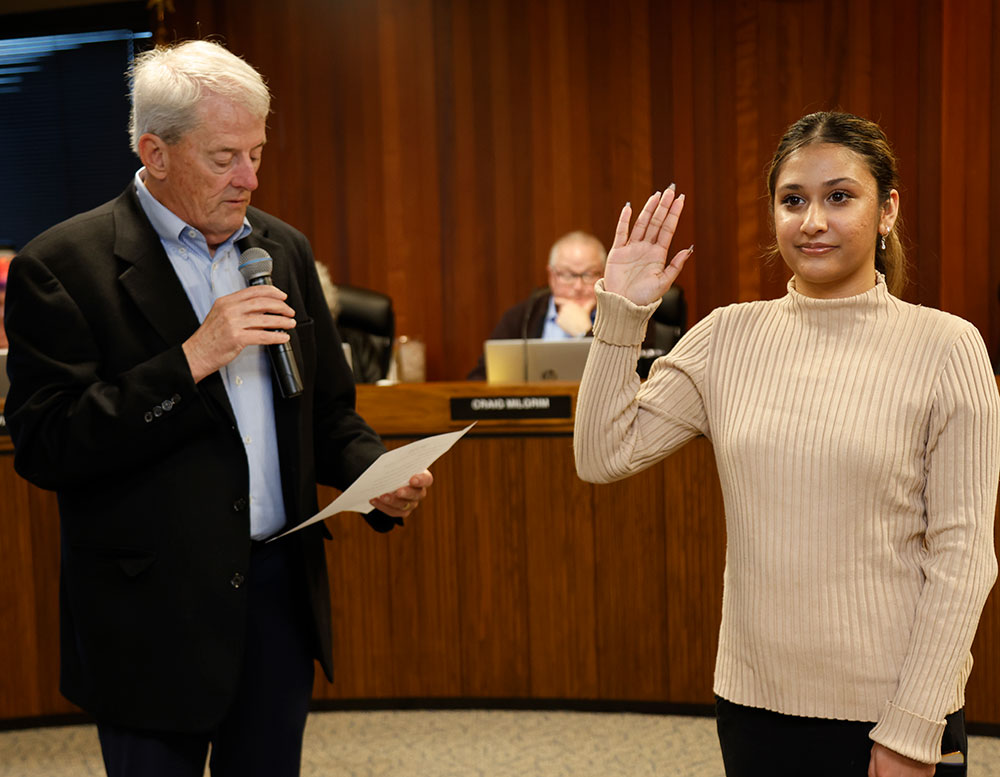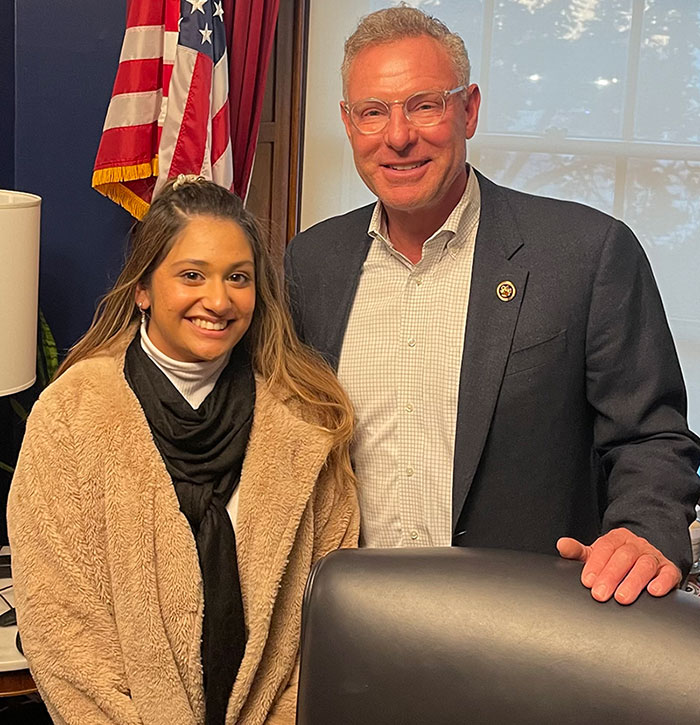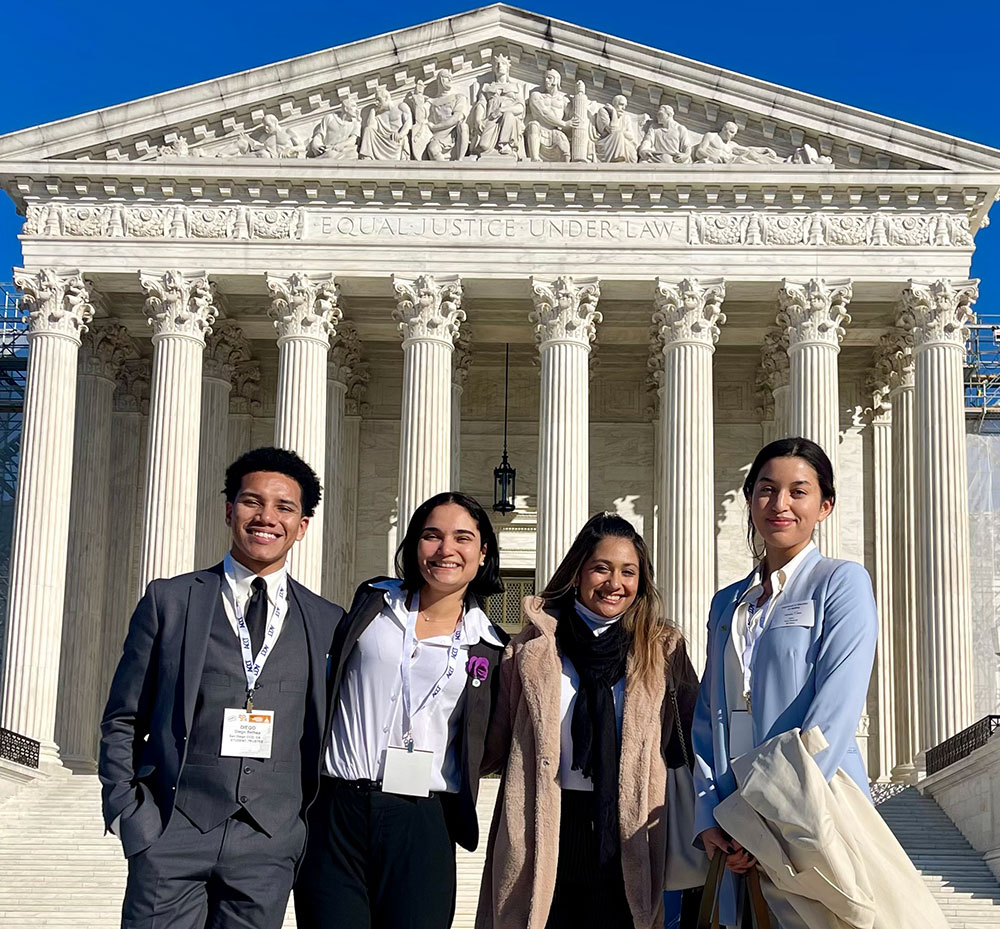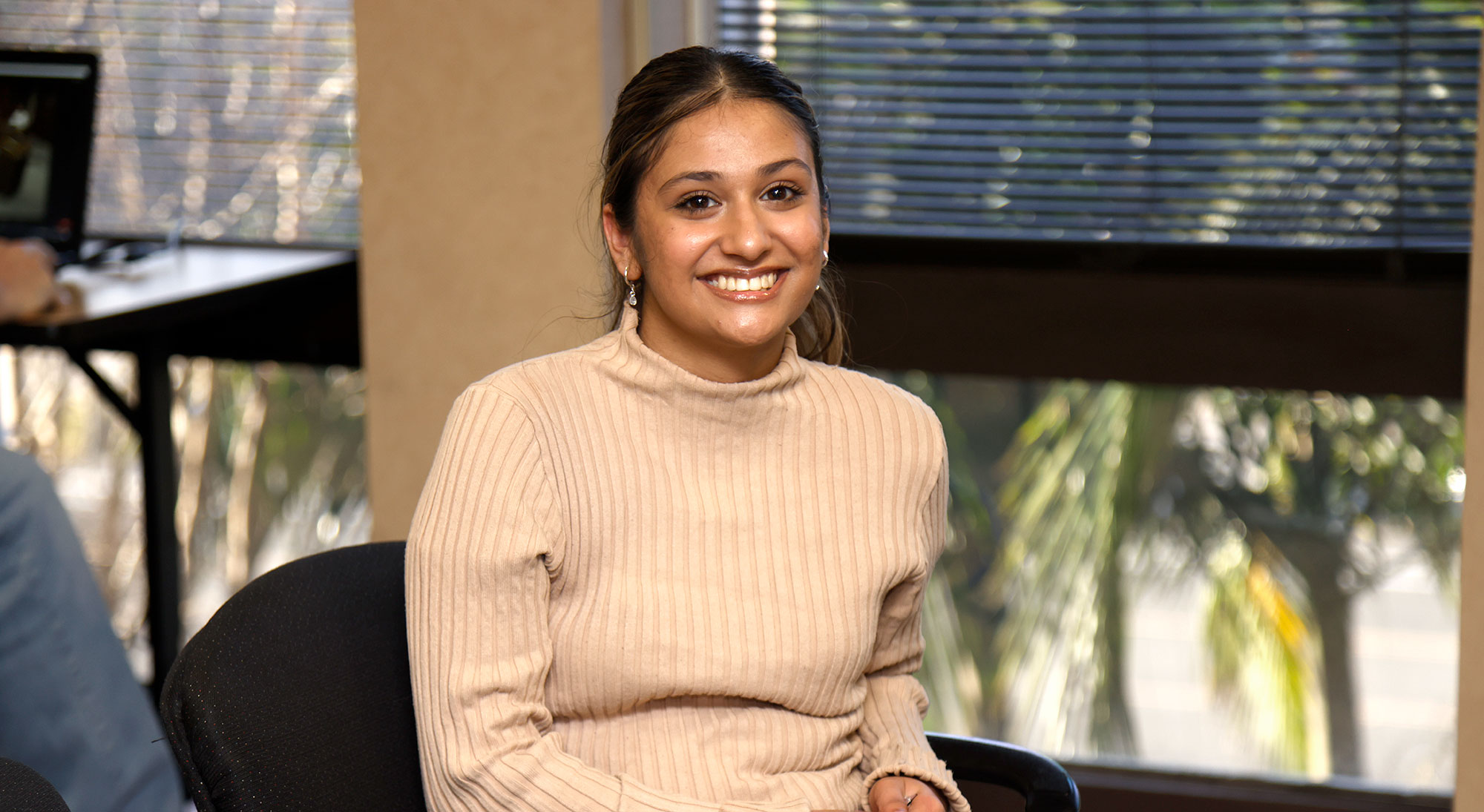
“I grew up in low-income housing in an area that had no job opportunities for socioeconomic mobility. It’s my responsibility to pursue equitable change for increased support towards at-risk populations,” Ghotra said. “I hope whatever I do, I am a representation of my heritage."
As a student trustee and Miramar College Associated Student Government (ASG) president, Ghotra, 19, focused her efforts on those advocacy trips to lobby for more funding to be allocated toward basic needs barriers, financial aid, and academic programs such as the San Diego Promise, which has benefited her with two years of free tuition.
Back at the Miramar campus, where she is studying political science, Ghotra and fellow ASG leaders are planning student activities and advocating for the expansion of mental health programs, as well as zero- and low-cost textbooks.
“I encourage all students to get involved on campus to see how the community college system works and to create meaningful changes in a space where those changes can actually happen,” Ghotra said.
In addition to her leadership roles at Miramar College, Ghotra is one of 16 students working closely with the California Mental Health Services Oversight and Commission on the Youth Advisory Group and as an intern for City Councilmember Kent Lee. She will graduate from Miramar College this spring and hopes to transfer to UC Berkeley, UC Los Angeles, or UC San Diego.
WE recently spoke with Ghotra about her culture and being a student leader:
Q: How did you choose Miramar College?
A: I always dreamt of going to college outside of San Diego but had to stay local due
to suffering a rare autoimmune disease. I participated in dual enrollment with Miramar
College during my junior and senior year at Mira Mesa High School. I loved it; I wish
they offered courses earlier during freshman year for students who want to work toward
their associate degree. My mom also went to Miramar College, which makes it more special.
Q: How has your experience been at Miramar College?
A: Amazing! The leadership opportunities I have achieved might not have happened if I
didn’t stay local and go to Miramar College. I have been able to focus on myself and
truly assess what I wish to do in my academic and professional career, at my own pace
— as community colleges often encourage.
Q: What languages do you speak?
A: My native languages are Punjabi and Hindi. I was a dual English and Spanish learner
in elementary school. I studied Spanish for eight years and grew up in Merced, where
my predominant community included peers who came from migrant families speaking Spanish,
as well as Punjabi.
Q: How does speaking different languages help you relate to your peers?
A: Language is a part of my identity. When I hear another student’s foreign accent or
know of their ability to speak other languages fluently, I can sense a relation of
our backgrounds; knowing more likely than not, we share a similar journey coming from
a family or necessity that has encouraged relocation to secure an abundant life.
Q: What is your favorite cultural tradition?
A: My family participates in a communal bonfire for Lohri, an event to say goodbye to
winter and to welcome the spring. Family, friends, and community gather together to
usher in new beginnings, and to celebrate light over darkness.
Q: What advocacy work have you done thus far being a part of ASG?
A: I have a history of depression and anxiety from adolescence. I noticed an abundance
of programs that brought attention to mental health resources in high school. However,
when I came to Miramar College, I noticed there weren't as many sustained resources
available to students past a certain point of counseling.
I have been having conversations to change that; we want to build sustainable resources for students to receive mental health counseling. It is incredibly important that Miramar College is a safe space.
Primarily, ASG is focusing on promoting low- cost and zero-cost textbooks implementation across all departments. We strongly encourage our faculty to apply for low- and zero-cost textbook development grants to turn fewer students away from pursuing a fruitful higher education at a community college while we work towards long-term higher education affordability as a District.

Q: What opportunities have you had as the ASG President/Student Trustee?
A: When I was first elected ASG President and Student Trustee, we went straight to Sacramento
to meet with Policy Consultant Andrew Medina, from the office of California's Senate
President pro Tempore Toni G. Atkins, to advocate for community college students.
Since then, I have gone to Washington, D.C., to speak with congressional officials
and the Department of Education one-on-one, regarding legislative priorities for our
district and students, including student aid reform and infrastructure support.
On behalf of Miramar College, I presented on the importance of continuing to fund and expand the San Diego Promise program. Two years of free-tuition has been very beneficial for me, it allows me to focus on school, my leadership roles, and pursue unpaid internships without worrying about outgoing academic costs.
Q: Why is advocating for students important to you?
A: One of my parents completed higher education in a third world country and achieved
a degree from one of the first engineering colleges established after Indian Independence
from Britain, in the agricultural state of Punjab. My dad worked extremely hard for
his computer science degree in India, but unfortunately, because he has that degree,
I am not considered a first-generation college student by many programs. He did not
have the same career opportunities in the U.S., which might be a perceived advantage
many would believe we had. We faced years of unemployment as a family, growing up
in the rural Central Valley. However, this idea of a perceived advantage from his
education took away many opportunities for not only mine, but my siblings possible
participation in programs that serve underserved communities.
Although on paper, I am not the first one in my family to go to college, I still face the same struggles as first-generation students. I want to advocate for greater inclusivity, with a larger breadth of students being eligible to apply for scholarships, grants, and programs that are developed for first generation and underserved students. I have felt for a long time that my demographic and our set of struggles, as a Sikh and Indian American, is often treated invisibly or lost in the model minority myth.
Q: Who inspires you?
A: My parents, undoubtedly. As much as we have our disagreements, their pursuits of
education have influenced me heavily. My mother went to community college later in
life, as an immigrant, and re-achieved her high school diploma as well as pursued
an associate degree in child development through Merced and Miramar colleges. I would
tag along as a preschool and elementary school student to her college to pick up textbooks
or look through her homework. She helped me with my academics, as much as I unsuccessfully
tried to help her find words in a Spanish dictionary for her language class ― we taught
each other.
Q: What does your family think about your accomplishments?
A: They are proud. My mother especially, she can't keep up with what I do. She knows
I go for everything I can to secure opportunities that many from our background hope
for, and that I don't take any of my advancements for granted. Education was hard
for her to choose, so she is very encouraging and supportive of my goals.
Q: What are your goals after you graduate from Miramar College?
A: Transferring to UC Berkeley, UC Los Angeles, or UC San Diego is at the top of my
list. My goal was always to go to college outside of San Diego. Going to UC Berkeley
would feel like a full circle moment for me as the university is close to where I
grew up. If I go to UCLA, there will be many political opportunities because Los Angeles
County is so large.
I also know I wish to return to the Central Valley at some point, for an unplanned amount of time, to improve and serve the area and my people in any way possible.
My ultimate dream is to work in mission-oriented leadership for public good, with security.

Saigeldeep Ghotra (second from right) and her student trustee peers got to visit
the Supreme Court building during their advocacy trip to Washington, D.C.
